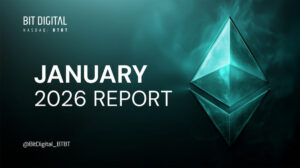TL;DR
- Renowned Bitcoin analyst PlanB reignited controversy by strongly criticizing Ethereum, labeling it centralized and premined.
- He argued that its node size and issuance changes undermine its decentralization. PlanB also questioned Vitalik Buterin’s dominant role in Ethereum’s development.
- Despite the criticism, other experts defended Ethereum as a more complex and functional platform designed for different purposes than Bitcoin.
Crypto analyst PlanB, the creator of the famous Stock-to-Flow (S2F) model, returned to the spotlight by launching fierce criticism against Ethereum. In a recent post on social platform X, he mocked a 2022 tweet where Vitalik Buterin criticized the S2F model. PlanB clapped back, stating:
“Ethereum is the one not looking good now,”
flipping Buterin’s words with a sarcastic twist.
PlanB accused Ethereum of being a centralized and premined project, claiming that its transition to proof-of-stake (PoS) and changes in its issuance schedule damage its value proposition. He also pointed out that running a full Ethereum node can require more than one terabyte of storage, whereas Bitcoin full nodes are under 700 gigabytes. According to him, this makes it harder for regular users to participate in the validation of the Ethereum network, which directly impacts decentralization. He even stated that he cannot run an Ethereum node on his current hardware, further reinforcing his critical stance.
Technical And Philosophical Differences Between Networks
PlanB also criticized Ethereum’s potential to reverse transactions, referencing the infamous DAO hack rollback in 2016. He said the fact that such rollbacks are even technically possible should be cause for concern. However, the Ethereum community has made it clear that a rollback of that scale would be nearly impossible today, given the network’s maturity and decentralization efforts.
Experts like Jeremiah O’Connor, CTO of cybersecurity firm “Trugard”, responded to PlanB by defending Ethereum as a different and more versatile tool. He explained that while Bitcoin is a strong store of value, Ethereum functions as a “global computer,” capable of running decentralized apps, smart contracts, and more complex on-chain systems.
Vitalik, PoS, And Ethereum’s Evolution
PlanB also questioned Vitalik Buterin’s influence over the Ethereum ecosystem, calling him a “single point of failure.” Nevertheless, Buterin himself recently announced that he is stepping back from day-to-day responsibilities to focus on research, shifting more responsibility to the broader community.

While the debate rages on, one thing is clear: Bitcoin and Ethereum serve different yet complementary roles in the crypto ecosystem. One offers predictability and financial soundness; the other, innovation and programmable versatility. In a rapidly evolving landscape, both are necessary.






![Is Dogecoin [DOGE] Security? Mad Money's Jim Cramer believe so](https://crypto-economy.com//wp-content/uploads/2022/01/Capture-2-300x184.jpg)




